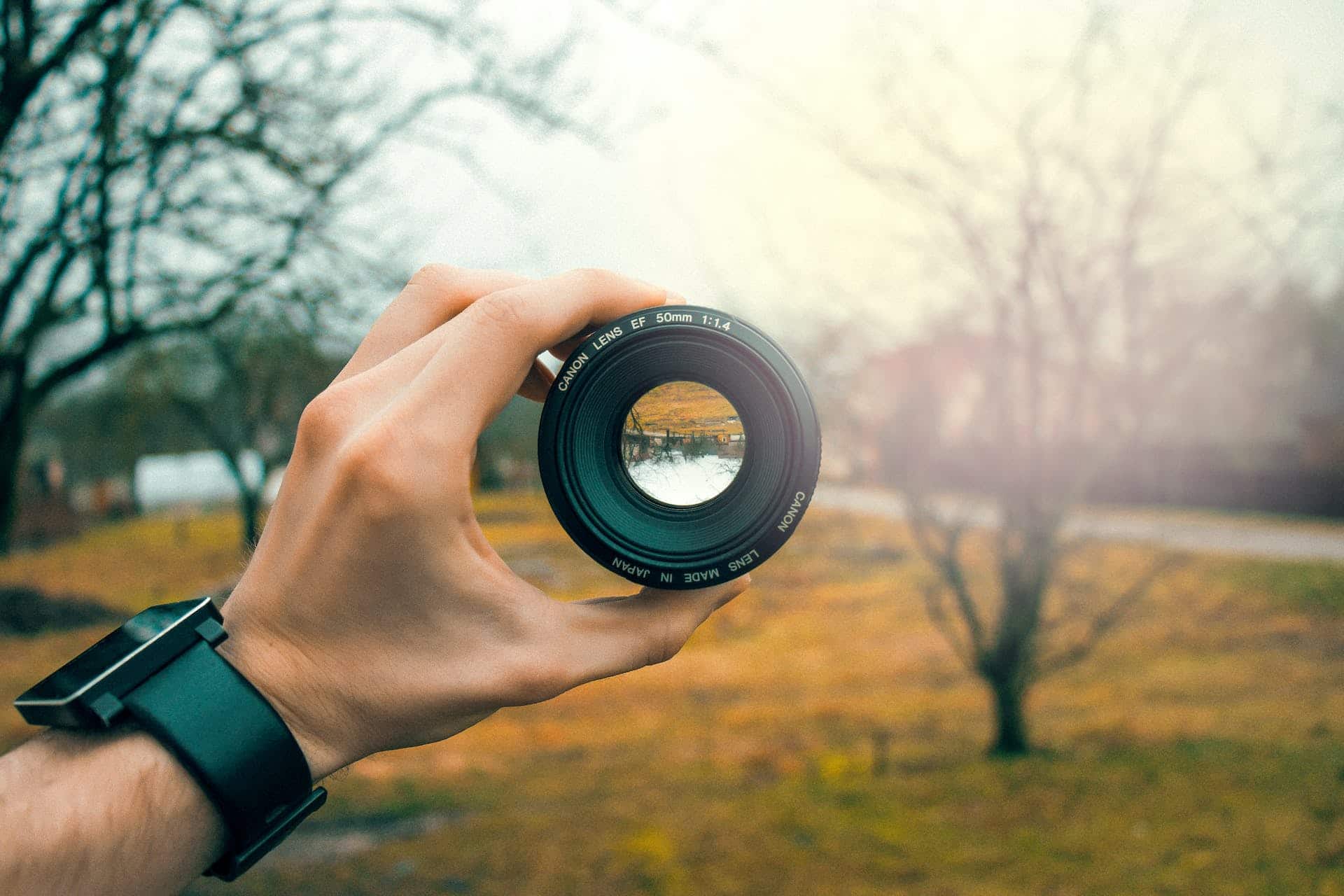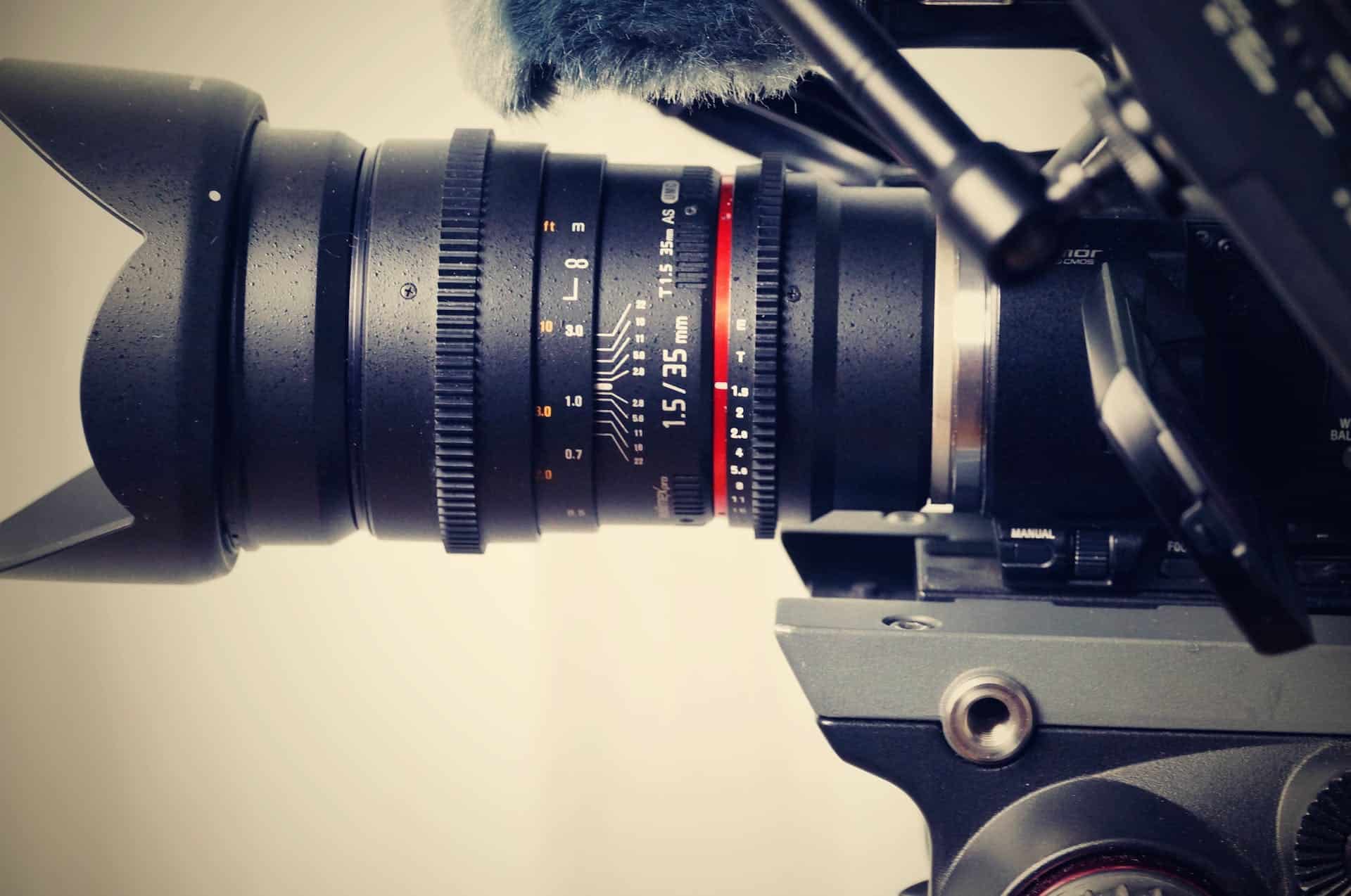Introduction Camera Polarizer Lens
In the fast changing photography environment, tools increasing picture quality are priceless. One such tool that often seems to stand out is the camera polarizer lens. Let’s look at its details and see how it can improve photography.
What is the work of a polarizing lens?
Simply put, polarization is how light waves are aligned. This effect is taken advantage of by a camera lens, which selectively blocks some light waves. As a result, it works to cut glare and improve color saturation. It is interesting to consider the mechanics of this process, which include the use of polarized light.
Benefits of Camera Polarizer Lens
The advantages of having a camera lens in your kit are numerous. Not only does it reduce glares and reflections, but it also enhances colors and increases overall contrast. These are important benefits for photographers who want to create beautiful, colorful pictures.
Types of Camera Polarizer Lenses
Round polarizers and linear polarizers are the options to be considered in selecting the appropriate camera lens polarizer. Secondly, the analysis of multi-coated polarizer lenses can shed light on optimizing efficiency and longevity.
Making the right camera polarizer lens a choice.
Choice of the best polarizer lens depends on several aspects that are compatibility with your camera system, filter size and budget availability. This section helps photographers in taking deliberate and personalized decisions.
Tips for polarizer lens use.
A camera polarizer lens potential can best be realized by knowing its complexities. This section describes two important issues in adjusting polarization for different scenes and over-polarization avoidance,
Practical Uses of Camera Polarizer Lenses
Camera lenses have great adaptability in different photography circumstances. Capturing the majesty of landscapes to highlight architectural elements as well as enhance water reflections, this section demonstrates their use in practice.
Maintenance of and Care for Camera Polarizer Lenses
Maintaining the durability and efficacy of a camera lens requires careful handling. Both cleaning techniques and storage practices delve into ensuring your lens is a reliable companion on your photographic trip.
The most common mistakes to avoid when using camera polarizer lenses.
The best tools can also be improperly used. Find out the common mistakes photographers make using camera polarizer lenses, including incorrect adjustments and use in low light conditions.
Post-Processing Effect of Camera Lenses
It is important for those photographers who must preserve the innocence of captured scenes after post-processing, to understand the scope and confines along with advantages in camera polarizer lenses.
Future Trends in Polarizer Lens Technology for Camera
With the advancements in technology, so do accessories for cameras. Investigate the possible future directions in camera lens technological development, including novel materials and impeccable integration with smart cameras.
User Testimonials
Practical cases from photographers who have used camera polarizer lenses in their daily work. Take lessons from their travels and reflect on the concrete advantages these glasses provide.

Comparison with Other Camera Accessories
Compare pit camera lenses with two of the most widely used accessories other than UV filters and ND filters. Know the distinct strengths of each and choose wisely in accordance with your photographic objectives.
Tools that improve the quality of images are very useful in modern photography. An example of such a tool that frequently becomes prominent is the camera polarizer lens. Let’s take a closer look at its details and see how it can make your photography better.
Polarizer CPL lens and how they work
In other words, polarization refers to the orientation of light waves. This effect is exploited by a camera polarizer lens that blocks selected light waves. With this, it also lowers glare and improves color saturation. The intricacies of this process are equally compelling, involving polarized light.
Benefits of Using a Camera Polarizer Lens
The pros of adding a camera lens into your kit are numerous. It reduces glare and reflection while enhancing color saturation and contrast. Knowledge of these positives is essential to photographers who strive for vivid, stunning photos.
Types of Camera Lenses
The selection of a camera lens involves going through the choices of circular and linear polarizers. Moreover, focusing on multi-coated polarizer lenses opens opportunities to understand maximizing performance and long life.
Introduction to Choosing the Right Camera Polarizer Lens
In choosing the best polarizer lens, you should consider the compatibility with your camera system, filter size and cost. This section helps photographers make decisions based on their individual requirements.
Effective Camera Polarizer Lens Tips
In order to use a camera lens to its full potential, a user must understand its intricacies. In this section, two crucial aspects are considered polarization adjustment for different scenes and the avoidance of over-polarization.
Application of Camera Polarizer Lenses in the Real World
Camera lenses reveal their flexibility in different stages of photography. In this section, we show how these techniques work in the real world and describe their use for capturing landscape grandeur, highlighting architectural detail and improving water reflections.
Maintenance and Management of Lenses for Camera Polarizers
Proper maintenance and care of a camera polarizer lens ensures its longevity and efficiency. Acquire proper cleaning techniques and appropriate storage methods for your lens to maintain it as a faithful companion in photography.
Do’s and Don’ts When It Comes to Camera Polarizer Lenses
Even good tools can be used improperly. Learn common errors photographers commit in the use of camera lenses, like misalignments and effectivity under low brightness.
Camera Polarizer Lenses in Post-Processing.
It is therefore essential for photographers who wish to preserve the authenticity of their captured environment even post-processing that they become aware of the limitations and advantages of camera lens.

Upcoming trends associated with Camera Polarizer Lens Technology
With the development of technology, camera accessories also change. Investigate the emerging future directions in camera lens technology by discussing new materials to practical seamless integration with mobile smart cameras.
User Testimonials
Lived experiences of photographers who have applied camera lenses as part of their work process. Let these journeys teach you the benefits of such lenses, that it is tangibly real.
Comparison with Other Camera Accessories
Compare the pit camera polarizer lenses to other popular accessories such as UV filters and ND filters. Know the strengths that each one has and make considered decisions based on your artistic goals.
Expanding on Camera Polarizer Lens Filters: Enhancing Photographic Excellence
In the realm of photography, going into more detail reveals the importance of camera lens filters. These filters are accessories of tremendous capacity that not only improve the way light affects your camera lens, but also enhance picture quality. This detailed guide will help you unwind the complexities of camera polarizer lens filters, explaining their purpose, benefits and some advice on using them properly. Camera Lens Filters Definition and Purpose Camera lens filters refer to optical devices that are attached on the front part of a camera lens. Primarily, they serve to polarize the light entering the lens so that a higher quality image is possible.
Mechanism of Action
The filters perform on the basis of polarization, blocking selected light waves. This operation lowers glare, weakens reflections, increases color saturation and makes a perfect photographer’s tool for all occasions. Benefits of Using Camera Lenses Glare Reduction. One of main advantages is large glare reduction especially outside. This is priceless when shooting reflective surfaces such as water, glass or reflective objects.
Enhanced Color Saturation
The camera lens polarizer filters amplify colors to make them richer and realistic. This improvement is also particularly effective for representing landscapes, increasing the aesthetic appeal of the environment. Improved Contrast. These filters enable contrast enhancement through controlled management of light. It can be particularly useful when a photographer wishes to highlight the difference between elements in the frame.
Camera Polarizer Lens Filters’ Varieties
Circular Polarizer Filters. The latter kind is the most widely used and recommended for modern digital cameras. The circular polarizer filters are made to be compatible with automatic focusing.
Linear Polarizer Filters. While not as prevalent now, the linear polarizer filters are still necessary for some purposes. They are commonly used in manual focus and old camera setups.
The correct camera polarizer lens filter is choosing
Compatibility. Select a filter that fits your camera lens size. The filter diameter selection is critical because different lenses have different thread sizes.
Quality and Coating
Choose top performing filters with multi-coating. This not only increases the durability but also reduces reflections and increases light propagation.
Budget Considerations
Although it is suggested to invest in a good quality filter, there are different options for different budgets. Take into account your individual needs and strike a compromise between price and efficiency. Camera Lens Filter Utilization Guidelines. Angle of Light Move the filter to match its orientation against the light source for best results. However, try different angles to determine the optimum angle that minimizes glare and provides color enhancement.
Avoid Over-polarization
Although polarizing filters can be quite effective, overuse causes artificial-looking results. Appropriately adjust the effect by using discretion for each shot. Nature Photography
Using a polarizer filter, capture the vivid colors of landscapes, eliminate reflections on water surfaces and reveal details in leaves.
Architectural Photography
Reduce reflections on the glass elements and increase to enhance architectural details, which will make your images more professional. Portrait Photography IN portrait horticultural photography, use a polarizer filter to minimize reflection on the skin, control highlights and give an understated richness in the ski tone. Camera Polarizer Lens Filters Maintenance and Care Cleaning Techniques Take care when using handle filters to blow off dust particles with a soft brush or an air blower. When cleaning, a microfiber cloth and lens cleaning solution should be used for deep but gentle cleanliness.
Storage Best Practices
Filters should be stored in a protective case to avoid scratches and damages. You may want to invest in a filter pouch that provides easy storage of your kit in the camera bag.

How to Avoid Some of the Typical Mistakes with Camera Polarizer Lens Filters
Incorrect Adjustment
Incorrect assessment of polarization level for a particular scene may lead to unwanted effects. Make the time to analyze every situation and make minor changes. Using in low-light conditions
Polarizer lens filters are most effective in a well-lit situation. However, refrain from using them in cases of low-light; they can compromise overall brightness and sharpness.
Post-Processing Effects of Camera Polarizer Lens Filters
Preserving Natural Colors. Polarizer filters tend to result in colors that are well balanced and naturally desaturated straight from the camera. It can diminish the necessity for deep color correction in post-production.
Limitations in Editing
While polarizer filters make an image look better in many ways, they cause some problems to post-process. These restrictions guarantee a balanced approach to editing. Technology Direction of Camera Lens Filter in Future
Advanced Coating Materials
Witness improvements in filter coating technology that will offer even better protection against scratch and overall optical performance. Integration with Smart Cameras With progress in the design of camera technology, it may consider integrating with smart cameras whereby automatic adjustments can be triggered after scene analysis. Photographer Experiences Listen to testimonials from photographers who have used camera lens filters as part of their workflow. Learn how these filters have changed their photography in a real way.
Comparison with Other Camera Accessories UV Filters
Understand the variations between polarizer filters and UV filters, and learn when to use each for optimal lens protection as well as image quality.
ND Filters
Compare the uses of the polarizer filters and ND filters, noting how each filter’s distinctive features make it appropriate in varying photographic situations.
Conclusion
In an era ruled by visual storytelling, camera polarizer lens has appeared to be one of its protagonists. Its potential to improve tones, minimize light reflection, and upgrade the overall visual experience makes it a necessity for discerning photographers. You would do yourself a very valuable favor when pursuing your photographic projects by means of a camera lens.
Asked Questions
Can a camera polarizer lens filter work with any type of camera model in the market?
- The sizes of camera lens filters differ, which applies to an array of cameras. Make sure that you pick your lens’ right filter diameter.
Are polarizer lens filters effective when used in video recording?
- Indeed, polarizer lens filters work well for photography and videography. They can also improve the visual quality of your videos via removing glare and increasing color intensity.
Is it possible to use a camera polarizer lens with any model of the camera?
- Polarizer lenses for cameras are available in different sizes and thread mounts, making it possible to use them with many types of camera models. Before ordering, make sure you check the dimensions to select the proper size for your camera.
What is the performance of polarizer glasses in low light areas?
- Polarizer lenses are developed for optimal performance under brightly lit situations but can not perform ideally in low-lit conditions. It is recommended to use them in areas where the natural or artificial lighting is enough.
How regularly should I clean my camera polarizer lens?
- Maintenance is essential for optimal operation. If you see any dirt, smudges or dust on your camera lens, clean it as necessary. It is recommended to use a lens cleaning kit for easy and efficient cleaning.

